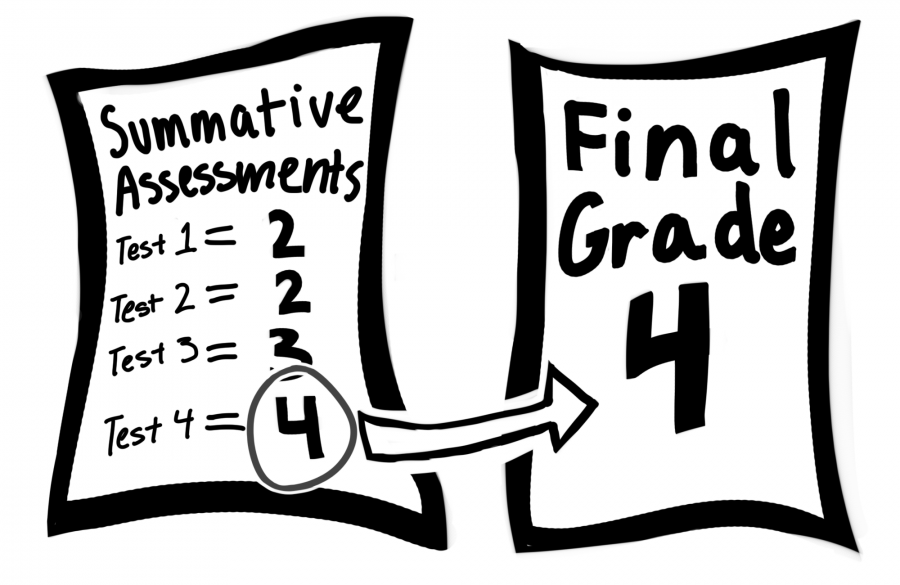Egan Adopts New Grading Policy
This year, students at Egan Junior High School will no longer see the time-honored As through Fs on their report card. Los Altos School District has established a new standards-based grading system focusesd on more holistic evaluation. The system aims to evaluate students based on Common Core standards with numerical grades.
The district brought the change after a debate about the purpose of grading. Eventually, the district agreed that grading should reflect a students’ learning of skills, as per Common Core ideals. Several district elementary schools implemented the new policy last school year.
“Is the purpose of school to get a letter grade at the end or is the purpose for learning?” Egan Principal Keith Rocha said. “If you got an F, it was because you didn’t do well on a test or turn in an assignment. That isn’t necessarily the best system because there are so many other variables that are weighing into your performance.”
Students now receive a grade of 4, 3, 2 or 1 depending on their performance on a standard. The four numbers correlate to mastery, approaching mastery, developing mastery and beginning mastery.
All assessments will be evaluated, but only the last assessment for each subject counts toward the student’s final grade. According to the district’s documentation, the standards are only meant to assess a student’s mastery at the time teachers release the report card.
This system seeks to reward improvement and assess mastery rather than short-term familiarity.
For eighth grade history teacher Jon Hayman, the lack of grading for a majority of homework decreased the turn-in rate as students lost grade incentive to complete assignments.
“Kids intuitively know homework is not being graded,” Hayman said. “Consequently our first homework assignment [had] approximately a 50 percent turn-in rate. I think [a few years ago] it was about 90 percent.”
Instead, Hayman observes homework has taken a new role in determining how students can improve their work if they do not reach a skill standard.
“Homework grades won’t be reflected on the report card, but if a kid can’t reach mastery of the skill standard, then we can look at it and we can see what work they didn’t do,” Hayman said.
The new standards-based grading system, Hayman feels, may just be a temporary trend.
“I hate to describe it as an educational fad and [say] that in 15 years we’re going to do something else, but I’ve lived a long time and I see these things come and go,” Hayman said.
Hayman expressed concerns that the emphasis on understanding over memorization will decrease students’ knowledge in subjects like history, in which memorization can seem like the only way to learn the material.
“Is a kid who graduates from high school going to know who won the Civil War?” Hayman said. “The people who are putting this new system into effect say that’s not as important as knowing how to read about it, because if you can read it, you can cite evidence and then you know who won the Civil War. I’m not so sure about that.”
However, eighth grader Amanda Le appreciates the emphasis on understanding material over memorization.
“[Standards-based grading] lets you know your mistakes without the pressure of getting a letter grade.” Amanda said. “I feel like you can actually learn from your mistakes without being scared of making them.”
Amanda is concerned that she may have a “bad day” when it comes to a summative assessment, and that the rest of the work for the subject doesn’t affect her final grade.
“The one thing I don’t like about standards-based grading is that all your work from a period of time that you’ve been studying that certain topic doesn’t really matter, except for that last summative assessment,” Amanda said.
Hayman also speculated that private schools will evaluate grades via direct translation to letter based grading. Common Core discourages this type of translation.
“St. Francis supposedly has a GPA standard, but there’s no more GPA, so what do you do now?” Hayman said. “I suspect the private schools are going to say a 4 is an A, 3 is a B and 2 is a C, and they’re not supposed to do that, because we’re not supposed to do that.”




